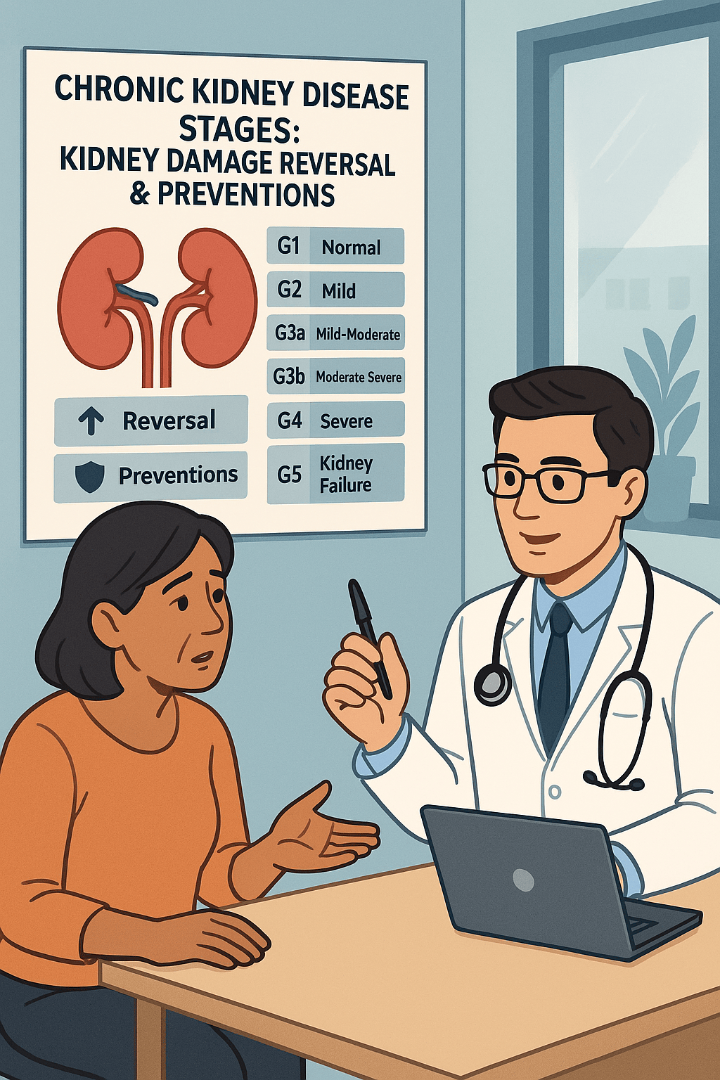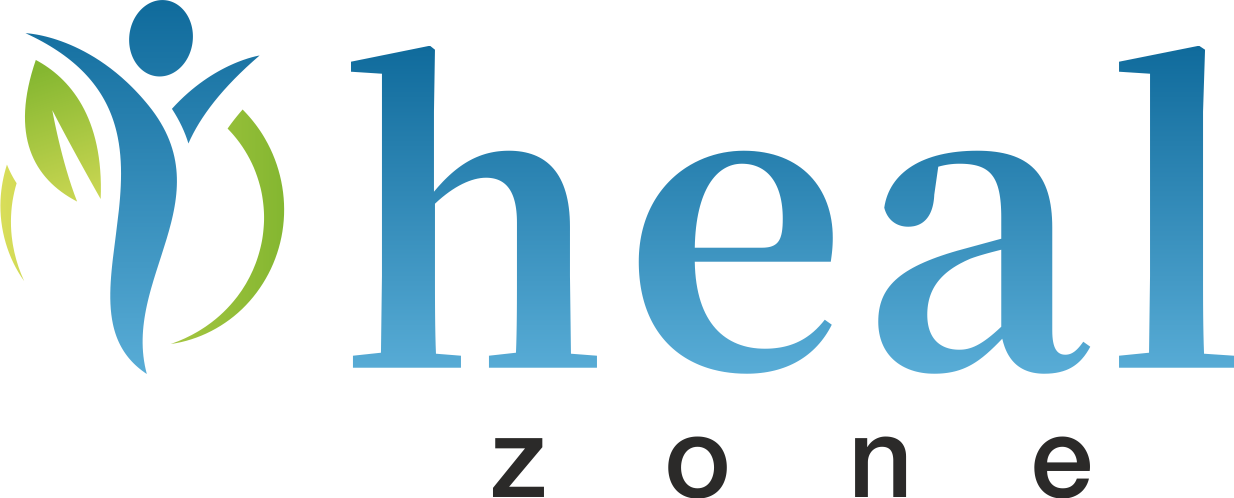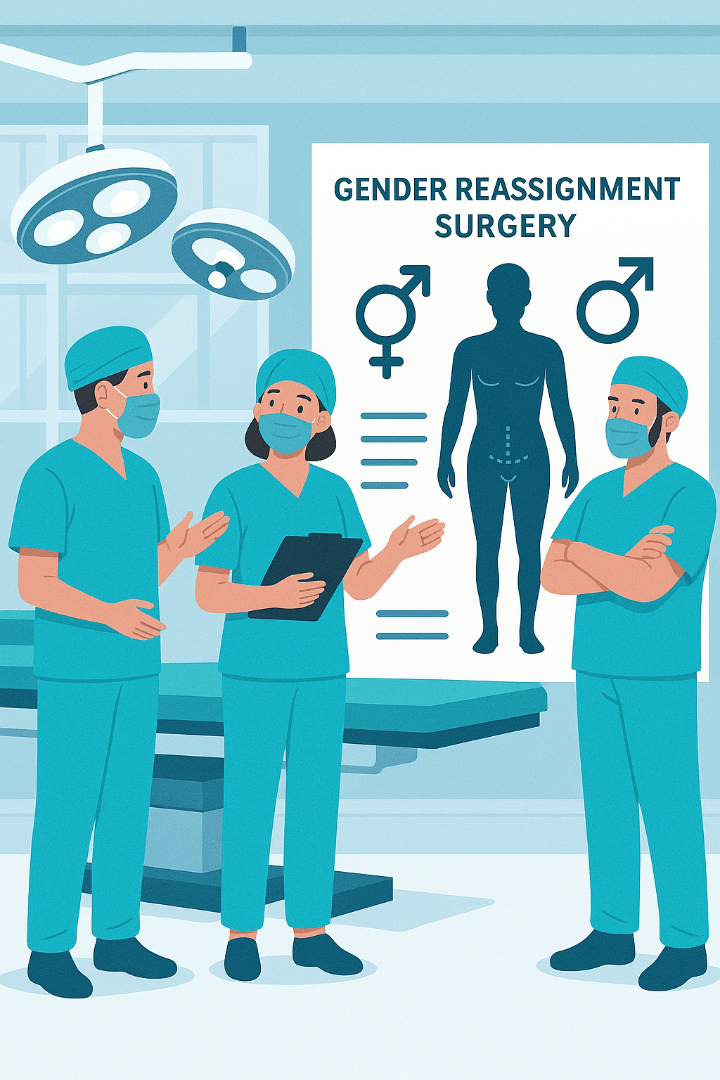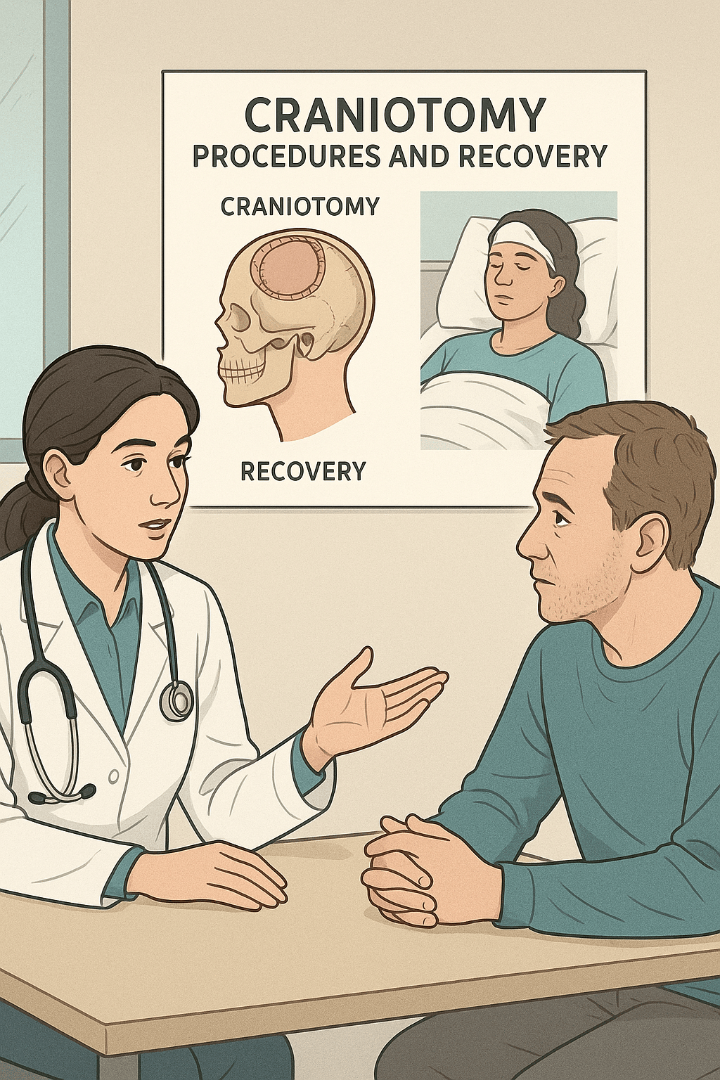Chronic Kidney Disease Stages: Kidney Damage Reversal & Preventions
 26 June,2025
26 June,2025

Chronic Kidney Disease Stages: Kidney Damage Reversal & Preventions
Nephrology
Chronic Kidney Disease (CKD) is a progressive condition that affects millions worldwide, leading to declining kidney function over time. Many people wonder: Can kidney damage be reversed? The answer depends on the stage of CKD and the underlying cause of the damage. In this blog, we will explore the different stages of CKD, whether kidney damage can be reversed, and steps you can take to slow or prevent further deterioration.
Understanding Chronic Kidney Disease (CKD)
CKD is a progressive condition where the kidneys slowly lose their ability to remove waste and extra fluids from the bloodstream. It often develops due to conditions like diabetes, high blood pressure, and infections. Since kidney disease progresses in stages, early detection is crucial for effective management.
Stages of CKD and Their Impact on Kidney Function
Chronic kidney disease is divided into five stages, determined by the glomerular filtration rate (GFR), which assesses how efficiently the kidneys function:
- Stage 1 (GFR ≥ 90 ml/min): Kidneys function normally but show signs of mild damage. No noticeable symptoms.
- Stage 2 (GFR 60-89 ml/min): Slight reduction in kidney function with possible protein leakage in urine.
- Stage 3 (GFR 30-59 ml/min): Moderate kidney damage; symptoms like fatigue, swelling, and back pain may appear.
- Stage 4 (GFR 15-29 ml/min): Severe kidney impairment; waste buildup causes complications like high blood pressure and bone disease.
- Stage 5 (GFR < 15 ml/min): End-stage renal disease (ESRD); kidneys can no longer function without dialysis or a transplant.
Can Kidney Damage Be Reversed?
The ability to reverse kidney damage depends on the stage of CKD:
Reversible Kidney Damage: Early-Stage CKD (Stages 1 and 2)
If detected early, kidney damage caused by infections, dehydration, or certain medications can be reversed.
- Lifestyle changes and medical treatment can restore normal kidney function in cases of acute kidney injury (AKI), which differs from CKD.
- Effectively controlling conditions such as diabetes and high blood pressure can help slow or stop the progression of kidney disease.
Partially Reversible Kidney Damage: Moderate CKD (Stage 3)
- While kidneys cannot fully heal at this stage, damage progression can be slowed or stopped with early intervention.
- Medications, dietary changes, and hydration can help improve kidney function and delay further decline.
Irreversible Kidney Damage: Advanced CKD (Stages 4 and 5)
- At later stages, kidney damage is usually permanent.
- Treatment is aimed at easing symptoms and stopping additional complications from occurring.
- Dialysis or kidney transplant may become necessary to replace lost kidney function.
How to Protect Your Kidneys and Slow Disease Progression
Even if kidney damage cannot be fully reversed, the following steps can help slow progression and improve kidney health:
Manage Underlying Health Conditions
- Maintain stable blood sugar levels to manage diabetes effectively and support overall health.
- Maintain healthy blood pressure (below 130/80 mmHg) with lifestyle changes or medications.
Eat a Kidney-Friendly Diet
- Limit sodium and processed foods to reduce strain on the kidneys.
- Choose lean proteins (fish, chicken, tofu) and avoid excessive red meat.
- Monitor potassium and phosphorus intake, especially in advanced CKD.
- Stay hydrated, but avoid excessive fluid intake if kidney function is impaired.
Avoid Harmful Substances
- Limit NSAIDs and painkillers (like ibuprofen), as they can worsen kidney damage.
- Quit smoking and alcohol, as they contribute to high blood pressure and kidney stress.
Stay Physically Active
- Engaging in physical activity consistently supports a balanced weight while enhancing blood flow throughout the body for overall well-being.
- Avoid overexertion, as excessive workouts can lead to dehydration and stress the kidneys.
Get Regular Kidney Function Tests
- Routine blood and urine tests help detect early signs of kidney disease.
- If you have diabetes or high blood pressure, check kidney function at least once a year.
Treatment Options for Advanced CKD
For those with severe kidney disease, medical treatments can help manage symptoms:
- Dialysis: Filters waste and excess fluids when kidneys fail.
- Kidney Transplant: Replaces a failing kidney with a healthy donor kidney.
- Medications: Blood pressure drugs, phosphate binders, and diuretics help manage complications.
Conclusion
While reversing kidney damage depends on the stage of CKD, early detection and proactive management can significantly slow progression. Maintaining a healthy lifestyle, managing underlying conditions, and getting regular checkups are key to preserving kidney function. If you or a loved one are at risk for kidney disease, consult a doctor to develop a personalized kidney health plan.
Written by
Reviewed by
Frequently Asked Questions
Drinking enough water helps maintain kidney function, but excessive water intake won’t reverse kidney damage. Hydration should be balanced based on kidney health.
Early signs include fatigue, swelling in the legs, frequent urination, foamy urine, and high blood pressure. Many people don’t notice symptoms until later stages.
Many herbal supplements contain high levels of potassium or toxins that can harm the kidneys. Before taking any supplements, seek medical advice to ensure they are safe and suitable for your health needs.
Control blood sugar levels, follow a kidney-friendly diet, avoid high blood pressure, and get regular kidney function tests to detect problems early.
Featured Doctors

Dr. Sunil Chaudhary
Vice Chairman
Cosmetic Surgeon

Dr. IPS Oberoi
Senior Consultant
Orthopedic and Joint Replacement Surgeon
Latest Blogs
Reviews
master mkhtar mosouy
""
Khaled Alias
""
Nabaa m
""
Noori Taqi Aleeko
""
russul russul
""
Hussein Mehdi
""
Shatly Mohamed
"The admission process was smooth and also discharge process. The doctors are professionals. The GD are perfect and come in handy. Our translator really did a good job. If your patient is in the ICU you don’t have to worry the nurses are hands on. However, in the ward some nurses are not hands on honestly."







